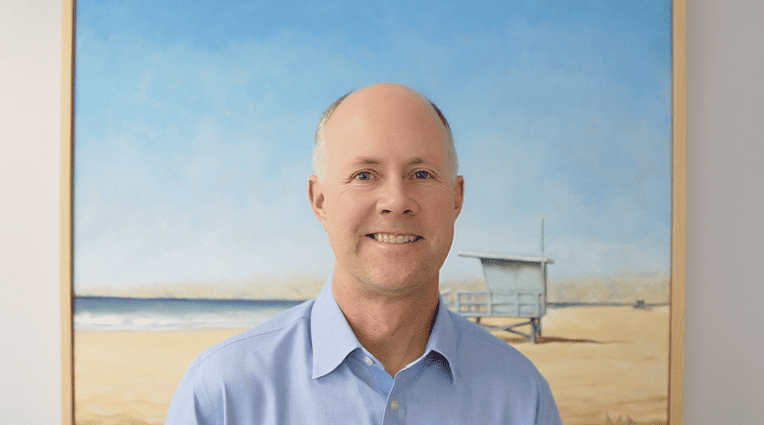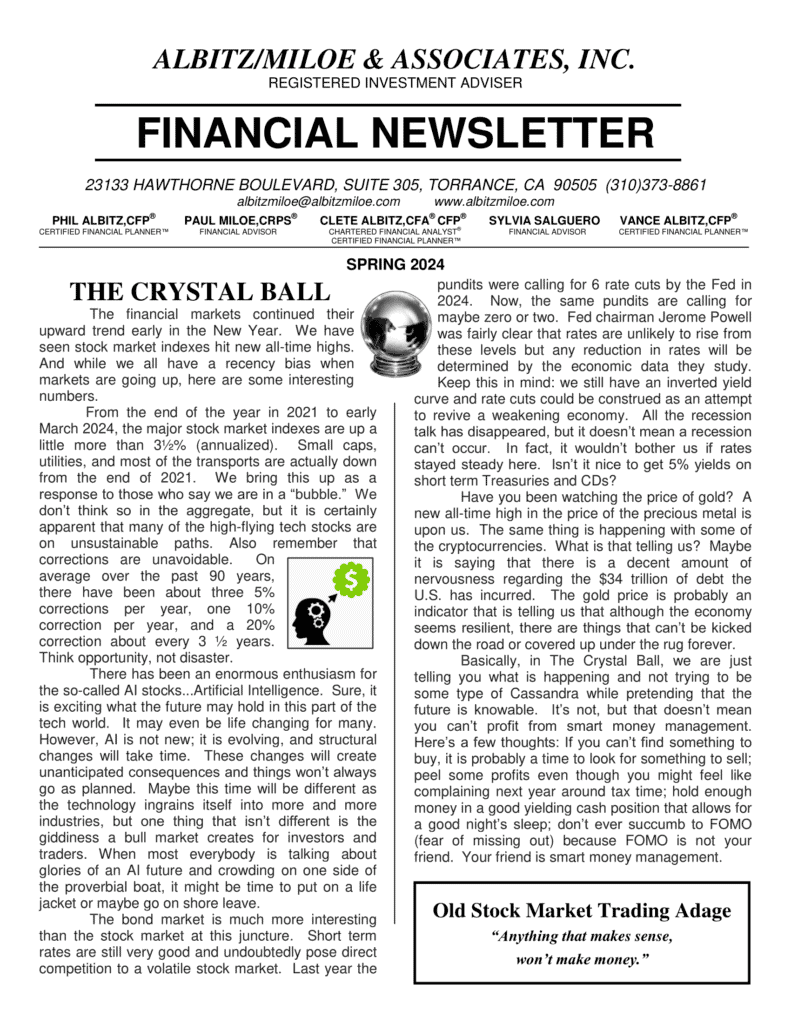There have been several changes on taxes and retirement plans effective in 2024 that you need to know about. Retirement plan contributions were raised, so if your goal is to maximize funding in your IRA, Roth, 401(k), etc., be sure to check what you’re funding. Base limits are now $7,000 for IRAs ($8,000 ages 50+) and qualified plans like 401(k)s are now $23,000 ($30,500 ages 50+). Before maximizing funding in any plan, be sure to confirm eligibility with your CPA or plan administrator as there can be additional factors based on income that may affect your personal contribution limit.
More components of the Secure Act 2.0 from December 2022 have become active this year. One allows employees to be eligible on an employer’s plan if they are considered a Long-Term Part-Time (LTPT) employee. LTPT employees are those that have worked at least 500 hours within the prior 3 years (2021-2023). Whereas many 401(k) plans have had a 1000-hour threshold, the LTPT rules will now permit those qualifying to join. However, while LTPT employees can participate (defer their funds to the plan), they still may not qualify for employer contributions unless they attain 1000 hours each year within a plan year.
The Secure Act 2.0 made other changes to retirement plans that are worth noting. One is the ability to receive employer funding (like a match) on an after-tax (Roth) basis, but only if the plan has made that option available to their employees. If so, realize that you will receive a 1099 from your employer for any after-tax funds contributed to your account. If you elect to have employer funding done on a Roth basis, be sure you receive the 1099 to file with your tax return after each plan year-end (generally by late January of the year following funding).
Next, those who have been affected and reside in areas that have been deemed natural disaster zones by the Federal government can now withdraw up to $22,000 from their 401(k)s or IRAs and not incur the 10% penalty tax on early withdrawals to help recover from the event. Regular taxes will apply, but the income received can be spread out over 3 years. Another provision allows anyone diagnosed with a terminal illness that should result in death within 7 years to take penalty free distributions. Separately, those with unforeseen financial emergencies can take up to $1,000 from IRAs and 401(k)s to help with the situation. Finally, some 401(k) plans may now offer the ability to contribute $2,500 to an after-tax (Roth) emergency savings account that could be later used as needed without tax or penalty. There are additional options as well for disabled workers and victims of domestic abuse.
Outside of retirement plans, if you are self-employed or otherwise set to make quarterly estimated tax payments keep a close eye on the deadlines and amounts owed as the penalty for underpayments was sharply increased back in October 2023 from 3% to 8% by the IRS. While this change would likely be most applicable to those earning 1099 income, even W2 workers could be affected if they fail to have adequate withholding done on their paychecks.
With so many changes effective this year, be sure to address any questions with your tax professional or plan administrator in advance of making a change. This is critically important if you seek to take advantage of any of the new distribution exceptions. When it comes to retirement plans and taxes, plan on more changes in the future, so know we’ll be here to help keep you informed. Please let us know if you have any questions.
For a comprehensive review of your personal situation, always consult with a tax or legal advisor. Neither Cetera Advisor Networks LLC nor any of its representatives may give legal or tax advice.




